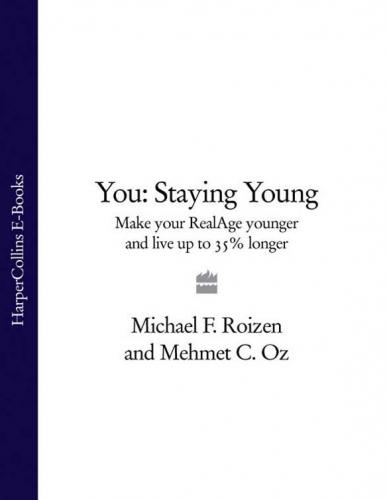Inflammation plays a role in lots of kinds of heart disease. For example, in atrial fibrillation (an abnormal heart rhythm), the heart’s small upper chambers, which are supposed to receive blood and gently propel it downstream, start looking like bags of worms (see Figure 2.3). Because blood isn’t pushed completely out of the atria, it may pool and clot. Atrial fibrillation is frequently caused by inflammation of the heart wall, and the damage is done by those oxygen free radicals produced by inefficient mitochondria. Arrhythmias can also be caused by a number of other things, including pressure on the walls of the atria or hormonal abnormalities, and can be linked to general inflammation of the heart. No matter the cause, the delicate cables that conduct electricity throughout your heart become swollen and start short-circuiting. You can actually feel arrhythmias as a fluttering of the heart (unassociated with love pangs, of course). Steer clear of bad trans-fat- and saturated-fat-laden fries, burgers and textbook-thick pieces of pie.
Figure 2.3 Bad Beat Irritation caused by inflammatory cells in the right and left atrial chambers of the heart makes the wall swell and electrical circuits short-circuit. The abnormal heart rhythms then cause blood to pool, so clots form, which can lead to strokes.
The Chelation Sensation?
You may have read about a development called chelation therapy – basically an arterial drain cleaner. In the process, a solution is injected into your veins, and it is supposed to bind with the calcium that hardens arterial plaque and subsequently clear it through your urine. The theory that chelation therapy works to diminish the calcium in your plaque has never been proven, but there’s anecdotal evidence that it can help clear arteries in some people. It’s very enticing but still experimental. An even better drain cleaner promises to be a new drug that is a super HDL called alpha-1-Milano. Look for it in the next few years if it passes the scientifically rigorous clinical trials.
Your goal to protect your heart is not only to cut down on the things that chip away at and clog up your arteries, but also to take action to strengthen your heart muscle and decrease your risk of cardiovascular disease. You have firefighters standing by, in the form of antioxidants, which your body produces to keep the Major Ager of oxidation from wounded mitochondria in check. And medicine can help too. Statins work by decreasing the inflammation in the plaque, which slows the progression of the clogging process and reduces sudden ruptures that can lead to clot formation and sudden closure of arteries.
FACTOID
When you’re over sixty-five, HDL is more important than LDL. Although statin drugs can be life saving, the net effect is that some choices may reduce healthy HDL cholesterol too. So you may want to try an alternative, like taking niacin, vitamin B5 and omega-3 fatty acids, and exercise for lowering your LDL while keeping your HDL high.
Ultimately, though, many of our recommendations are aimed at adding to your firefighting unit so it stays fresh and is able to quench the small fires and occasional meltdowns that occur within your arteries.
YOU TIPS!
It’d be easy for us to sit here and scold you: no more fried chicken, no more smoking, no more popping scoops of M&M’s every time you walk by the cupboard. We believe that you’re fully aware that sweets, fried anything and cancer sticks aren’t exactly cardiac elixirs. So without taking away all your joys, here are the steps that you should do to let your heart perform its main job: moving blood through your body – with no obstructions.
YOU Tip: Feed Your Heart. These days, you don’t have to be a dietitian to know that certain foods will create some serious roadblocks on your arterial highways. Saturated fats and trans fats are two of the things that accelerate and magnify the inflammatory process. That chili-drenched hot dog doesn’t just add to your lousy LDL cholesterol; it also stimulates your genes to produce more inflammatory proteins to make the tissue irritation a whole lot worse. Thankfully, the following foods are good not only because of the heart-healthy nutrients they deliver but because they have strong anti-inflammatory effects.
